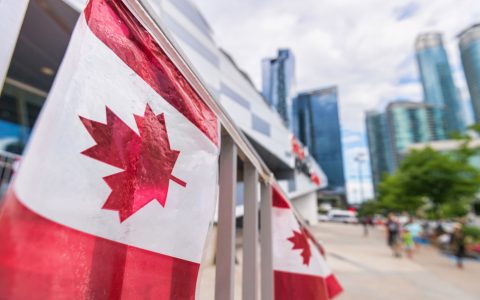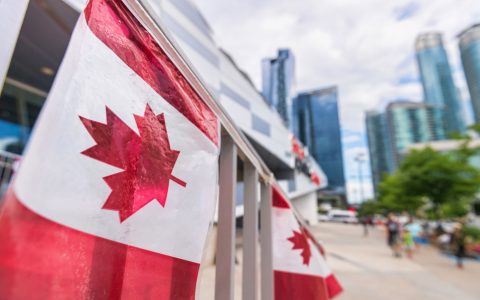Just hours after recreational cannabis became legal across Canada, the federal government announced it would grant amnesty to Canadians who have been convicted of possessing less than 30 grams of cannabis.
“These Canadians should be allowed to shed the burden and stigma of a criminal record,” public safety minister Ralph Goodale said at a press conference Wednesday morning. He said the step would “remove roadblocks to their reintegration in society” and effectively “enhance public safety for all Canadians.”
For years, Canadians with criminal records for possession of small amounts of cannabis have faced challenges clearing background checks and travelling abroad.
Goodale told reporters that he expected new legislation to be in the House of Commons for consideration before the end of the year. Eligible Canadians will be able to apply for pardons as soon as their prison sentences are over. Goodale said the government would keep the application process as simple as possible—and not charge a fee.
Pardons will not apply to convictions for trafficking and other activities that are still considered illegal despite the end of prohibition. Cannabis Amnesty says more than 500,000 Canadians have a criminal record related to infractions that are now being removed from the Criminal Code.
Annamaria Enenajor, a Toronto-based lawyer affiliated with the organization, said it would be better to expunge the records for those convicted of low-level cannabis crimes rather than force them to apply for pardons.
“The whole point of amnesty is to prevent all prejudice arising from a conviction going forward and a pardon does not fully accomplish this,” she wrote. “If the government is serious about the purpose of amnesty, expungement is the only option.”
But Goodale defended his government’s approach, saying automatic expungements would take longer and prove more costly to the government.
He acknowledged that, earlier this year, the government expunged the records of Canadian men who had been criminally convicted for homosexual acts when it was a crime. However, he said discrimination against homosexuals was a “profound historical injustice” that needed to be corrected and said the government’s treatment of cannabis users was “not of the same nature.”

















